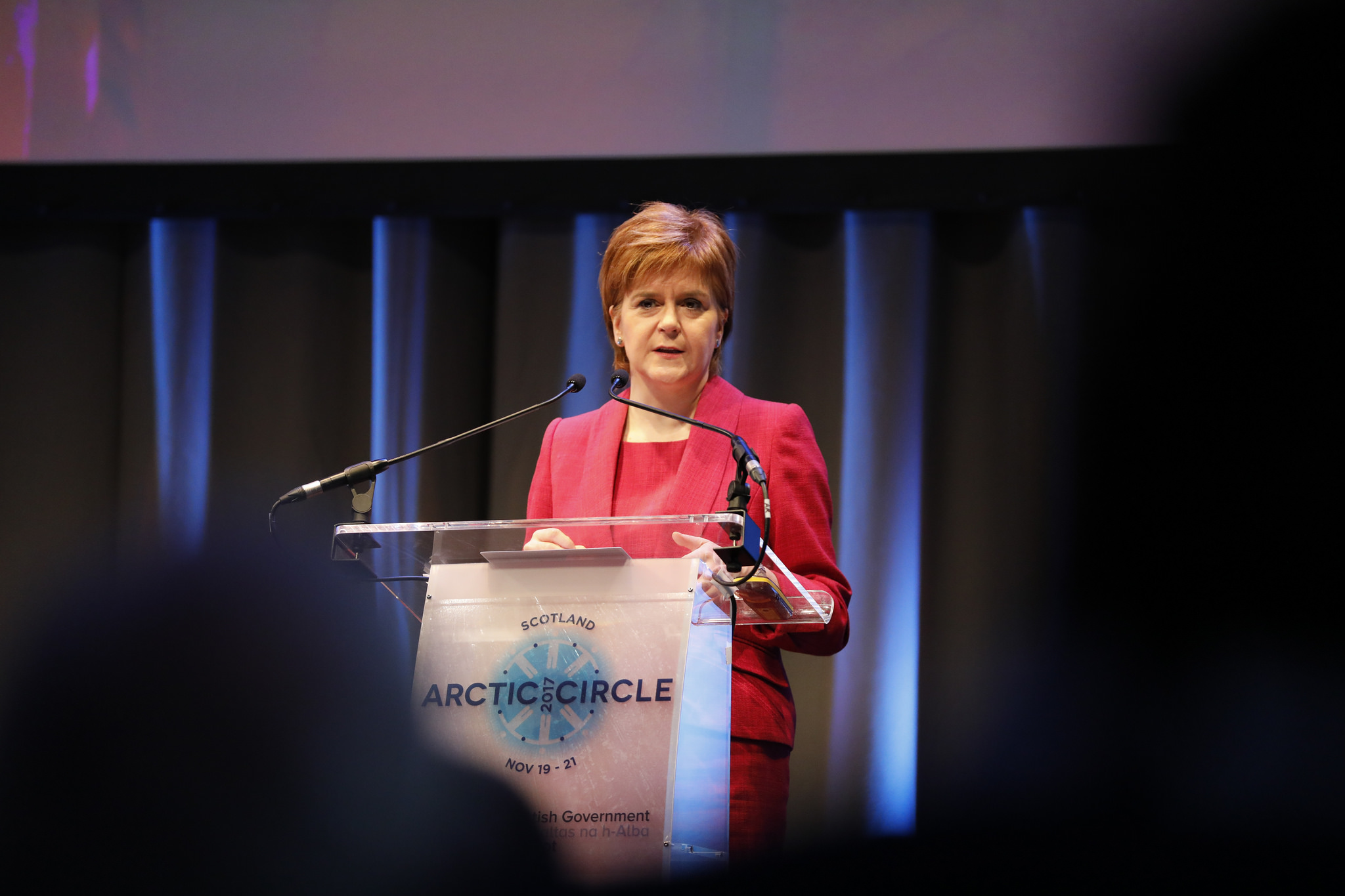Solidly southern Scotland seeks northern prosperity

Pivoting to the North to develop economic ties with Iceland, the Faroe Islands and other countries of the Arctic will result in a “fairer and more prosperous” Scotland, Nicola Sturgeon, the country’s leader, said today during the opening of a two-day conference in Edinburgh.
“Countries around the world are dealing with the challenge of how to support a successful and dynamic economy while also building a fair and inclusive society. As Scotland seeks to achieve this aim, we have – and will continue to – look north for inspiration,” Sturgeon told the audience of the Scotland and the New North gathering.
The meeting brings together some 350 people, including cabinet members, policy makers and officials, from some 50 countries to discuss Scotland’s ties to the region, and to examine common issues, in particular climate change.
Due to their cultural and geographic similarities – Scotland and Arctic regions often face many of the same issues, Sturgeon argued.
“In fact, we’re seeing that more and more, as our nations adapt to major economic and environmental changes – from the onset of global warming to the effects of globalization,” she said.
Sturgeon recognized that Scotland is not an Arctic country. But, even though it was solidly rooted in the British Isles and Europe, the country and the region could benefit from its position as the closest non-Arctic country to the region.
Its geographic position made it natural for Scotland to look both north and south as it sought solutions to social and economic problems.
“It means that, now more than ever, there is a need – and indeed an opportunity – for us to work together on shared priorities.”
In addition to transportation, tourism, and issues related to a warming climate, Sturgeon also explained that shared settlement patterns between Scotland and the Arctic meant it could learn from the often small, isolated towns and settlements in the region.
“And, of course, all the issues we are discussing are linked, directly or indirectly, to a much larger theme. One of the questions which countries across the world are struggling with at present is how to ensure that a dynamic, open and innovative economy goes hand in hand with a fair, inclusive and sustainable society.”
Guðlaugur Þór Þórðarson, the Icelandic foreign minister, who also addressed today’s gathering, welcomed an expanded role for Scotland in the region.
“We see this increased interest as a good thing. It can bring more comprehensive co-operation in many fields and expand the dialogue on one of the most pressing challenge that we face as a global community, climate change. Everybody needs to be involved in this discussion.”